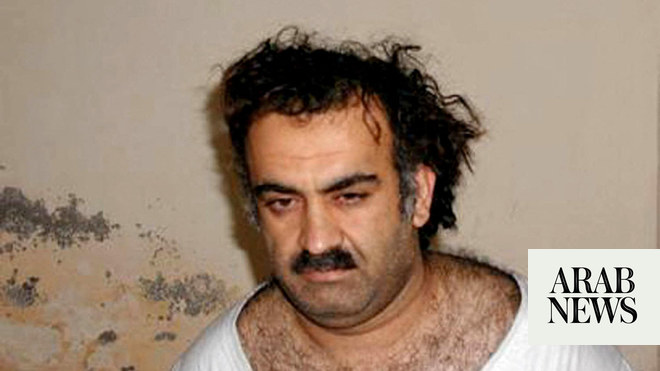DHAKA, Bangladesh: Bangladesh observed a day of mourning on Tuesday to commemorate the more than 200 people killed in recent weeks during violence that erupted from student protests over the system of term for government work in South Asian countries.
After weeks of peaceful protests by students seeking to change the system — which reserves 30 percent of government jobs for families of veterans and combatants for freedom during the 1971 war of independence with Pakistan — violence erupted on July 15 when activists from the student wing of the ruling party attacked protesters. Security officials fired tear gas and rubber bullets to quell the violence.
The protests have posed the biggest challenge to Bangladesh's government since Prime Minister Sheikh Hasina won a fourth consecutive term in January elections held by the groups. anti-boycott.
The ruling Awami League and the opposition Bangladesh Nationalist Party have often accused each other of fomenting political unrest and violence in the run-up to the election, which has been marred by a crackdown on several opposition parties.
Government officials — including those in the Bangladesh Secretariat, a top office that includes most ministers and bureaucrats — wore black banners Tuesday to mourn those killed in the violence.
Bangladesh is slowly returning to normalcy with a curfew. The authorities have also asked all mosques, temples and religious places to organize special prayers on Tuesday for the dead.
On Tuesday, Hasina visited a government-run hospital in the capital Dhaka, where many of the injured were being treated. He asked the hospital authorities to ensure the best possible care.
Also on Tuesday, members of 31 cultural groups tried to hold a rally in central Dhaka, condemning the violent deaths but were stopped by police. No violence was reported as the singers and other activists sat on the streets and continued to protest peacefully under police cordon.
Home Minister Asaduzzaman Khan put the overall death toll at 150, while the country's leading Bengali-language daily, Prothom Alo, put the death toll at 211. since violence erupted on July 15 when thousands more were injured.
Media reports say about 10,000 people have been arrested in the past two weeks in connection with clashes with protests and other attacks on government property. Human rights groups have called for an end to arbitrary arrests, and critics have accused the government of using excessive force to reduce violence.
“The mass arrests and arbitrary detention of protesting students is a manhunt by the authorities to silence anyone who dares to challenge the government and a tool to perpetuate a climate of fear,” Smriti Singh, regional director for South Asia at Amnesty International said in a statement on Monday.
“Reports suggest that these arrests are entirely politically motivated, in retaliation for human rights violations,” Singh said.
The government has defended its position, saying the arrests were made on specific charges, and that they have reviewed CCTV footage and are based on evidence.
Six of the protest organizers detained by the Detective Branch of the Dhaka National Police issued a statement calling off the protest, but other protesters rejected the video statement, saying it was coerced.
They say they will protest until all their demands are met, including a public apology from Prime Minister Hasina.
The police said that the six coordinators were taken into custody for their own safety, and their families met them on Monday. A video was released showing the six having dinner with the head of Dhaka's spy agency, Harun-or-Rashid.
Human rights activists demanded the release of the six so that they could return to their families.
The protesters do not have a single leader, although the movement has several coordinators across the country. A statement issued by a moderator, Abdul Hannan Masoud, called for demonstrations on Wednesday in educational institutions, courts and main roads. The publication could not be independently verified.
Also on Tuesday, Bangladesh Law Minister Anisul Huq said the government would ban the right-wing Jamaat-e-Islami party and the student wing Islami Chhatra Shibir. Hasina and several other cabinet ministers have accused the party and its student wing of being involved in the violence during the student protests.
Huq said 14 parties led by the ruling Awami League decided that Jamaat-e-Islami and its student wing should be formally banned on Wednesday. Details of the ban were not immediately made clear.
The party was a coalition partner of the Bangladesh Nationalist Party under former Prime Minister Khaleda Zia, Hasina's rival, from 2001-2006. The party actively campaigned for the Pakistani military and opposed the creation of independent Bangladesh in 1971.
Protesters say the 30 percent quota is discriminatory and has benefited supporters of Hasina, whose Awami League party led the independence movement, and are calling for it to be replaced with a system based on with integrity.
On July 21, the Supreme Court ordered a cut to 5 percent for 1971 for war veterans. Of the rest, 93 percent of civil service jobs are based on merit, while the remaining 2 percent are reserved for members of ethnic minorities, transgender and those with disabilities. Two days later, the government accepted the order and promised to implement the decision.
The status of combatants in the 1971 war remains a contentious issue in Bangladesh as it was applied to women who were raped by Pakistani soldiers and their collaborators during the war for independence — and their children, too. the period. These women were recognized as “freedom fighters” because of their ordeals. Sheikh Mujibur Rahman, Hasina's father, was the independence leader of Bangladesh.
Internet and mobile media services were restored on Tuesday after a days-long internet outage, but social media platforms including Facebook remained blocked. Banks and offices were open under curfew. Schools and other educational institutions were closed pending a reopening date as police continued to battle protesters.
